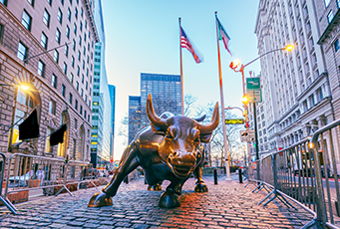Alibaba is the Chinese version of Amazon and eBay. However, it is already larger than both of them combined! It just went public and investors can now buy its stock on the New York Stock Exchange. Is this a no-brainer or are there risks to consider?
Alibaba, the Chinese e-commerce behemoth, made a stunning stock market debut on Friday, September 19th. The company raised $25 billion in its Initial Public Offering (IPO), setting a record for the largest IPO in history. Shares soared 38% from its IPO price and the closing price translated to a market value of $231 billion for the entire company.
The recognizable name, Alibaba, comes from the famous collection of stories “One Thousand and One Nights” (also known as “Arabian Nights”). In the tale, a good man who was a poor woodcutter, named Ali Baba, stumbles upon a thieves’ den filled with treasure. Ali Baba discovers the secret words, “open sesame”, for accessing the treasure, but comes close to losing his life at the hands of the Chief Thief. Is the new “Alibaba” more like “Ali Baba” or the chief of the thieves?
Open Sesame
Much like the literary hero, we may have stumbled upon a treasure trove. Alibaba controls 80% of China’s e-commerce market. Often described as a combination of Amazon and eBay, in terms of transaction volume it is already bigger than these two combined. Likewise, its profits ($4.9 billion in the year ended June 2014) dwarf those of Amazon ($181 million) and eBay ($646 million). Over the same time period, Alibaba’s revenues grew 43%. Looking ahead, the company is expected to grow nearly 30% annually over the next five years. Those are very impressive numbers that especially stand out in our current low-growth environment. If these growth projections come true, that will be a very strong tailwind for the company.
Close Sesame?
Before you rush out and buy, consider the following:
- The growth potential is well-known; therefore, you will have to pay for it. Alibaba is a very expensive stock, trading at close to 40 times next year’s estimated earnings (compared to around 16 times earnings for the S&P 500).
- Currently, less than 10% of Alibaba’s revenues come from outside China. The company has said that it will expand “aggressively” into the United Sates and Europe. There is no guarantee that it can replicate its success in China.
- Owners of Alibaba stock are not truly owners of the company. The stock actually represents ownership in a Cayman Islands-based holding company. The holding company has a contract with a variable interest entity in China. What this all means is less protection for investors. In the event of malfeasance by executives or the board, investors’ recourse is limited. Will that be an issue? Hopefully not, but there is a worrying precedent – Alipay.
What Happened to Alipay?
Alipay, a payment platform similar to PayPal, was an Alibaba subsidiary. In 2010, the subsidiary was transferred to a company controlled by the chairman of Alibaba, Jack Ma. The move was in response to new licensing regulations issued by China’s Central Bank, but it was handled less than smoothly. The price paid for this valuable franchise was nominal and there was no apparent attempt to realize a fair price for Alibaba’s owners. What was most disturbing, Yahoo, which owned 43% of Alibaba at the time, was not informed of the transfer until seven months later! The sides eventually reached a settlement over the transaction, but Yahoo pretty clearly got the worst of the deal.
Conclusion
Alibaba is obviously an interesting and exciting company. But prospective buyers should understand the various risks involved and make sure that they are comfortable with those risks. The best case scenario for buyers is that enjoyed by Ali Baba himself, who eventually was the only person who knew the secret of the treasure cave and was rich beyond his wildest dreams. What is the worst case scenario? You could end up with a dagger in your heart like the chief of thieves!
Prior to implementing any investment strategy referenced in this article, either directly or indirectly, please discuss with your investment advisor to determine its applicability. Any corresponding discussion with a Bedel Financial Consulting, Inc. associate pertaining to this article does not serve as personalized investment advice and should not be considered as such.
Recommended Articles
International Stocks: Exploring Global Investments
Investing in international securities offers an appealing...
Embracing Digital Innovation: Understanding the New Cryptocurrency Reserve
On March 6th, the Trump administration announced the...





